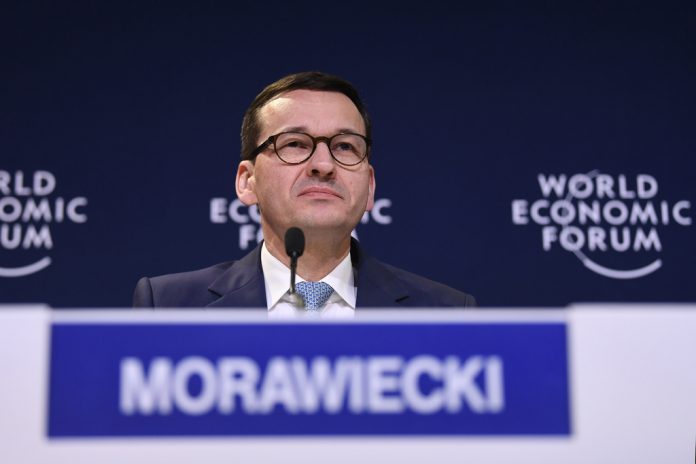
Diplomatic relations between Israel and Poland remain tense over the extent of Polish complicity during the Holocaust.
Prime Minister Mateusz Morawiecki cancelled his country’s participation at the central European Visegrad group five-way summit in Jerusalem this week, after Prime Minister Bibi Netanyahu told reporters in Warsaw for a Middle East conference (last week), when pressed, that “Poles cooperated with the Nazis”.
Israel’s leader was clear that he would not “whitewash” history.
Morawiecki then cancelled ‘any’ Polish participation after acting Foreign Minister Israel Katz referenced a quote from former Prime Minister Yitzhak Shamir about Polish actions during the Holocaust in an interview on Reshet 13 TV last Sunday.
Katz told the interviewer that as a son of a Holocaust survivor, the memory of the Holocaust was not something to compromise about.
“It is obvious. We will not forget, and we will not forgive,” he explained.
“Poles collaborated with the Nazis, definitely. As (former Israeli Prime Minister) Yitzhak Shamir said, his father was murdered by Poles, he said that from his point of view they sucked anti-Semitism with their mothers’ milk. You can’t sugar-coat this history.”
Morawiecki labelled Katz’s comments “racist” and “absolutely unacceptable.”
And Polish Deputy Foreign Minister Szymon Szynkowski vel Sek called for a “unified and definite” apology from Israeli leaders.
But Katz, whilst wishing to maintain relations with Poland, remained resolute during an interview on Army Radio that the historical truth could not be changed.
“Many Poles collaborated with the Nazis and took part in the destruction of the Jews during the Holocaust,” he said.
“Anti-Semitism was innate among the Poles before the Holocaust, during it and after it, too.”
Netanyahu’s office said that his comments had been misquoted.
Israel’s leader clarified his viewpoint to “Poles and not the Polish people or the country of Poland” were complicit during the Shoah in a bid to appease the Polish leader.
But Morawiecki would not rescind his Polish participation.
US Ambassador to Poland, Georgette Mosbacher, entered the discussion on Wednesday in a bid to break the deadlock, calling on Katz to apologise.
“I just felt that two strong allies like Israel and Poland, of course they are strong allies of the United States, shouldn’t be using that kind of rhetoric,” she told reporters.
“We are too important to each other not to work these things out.”
Mosbacher’s intervention came after Israel’s Foreign Ministry spokesman Emmanuel Nahshon confirmed three leaders would hold meetings with Netanyahu the day before.
Netanyahu had heralded the five-way talks as noteworthy in his outreach to Central European countries with pro-Israeli governments countering the criticism that Israel faces on the international stage. He subsequently held individual, bilateral talks with Slovak Prime Minister Peter Pellegrini, Czech Prime Minister Andrej Babis and Hungarian Prime Minister Viktor Orban, before hosting the trio at his official residence.
Netanyahu veered away from comments on Poland at a press conference, speaking instead on joint economic, technological and cultural projects.
WJC President Ronald S. Lauder lamented the Israel-Poland rift succinctly in a statement.
“As someone who has been deeply engaged in promoting Polish-Jewish understanding for over three decades, I can only decry the deterioration in relations between Israel and Poland,” he noted.
“It is unfortunate for both Jews and Poles that obnoxious and offensive stereotypes that have caused so much pain and suffering on both sides over the years continue to circulate.
“Such language should have no place in civilised discourse. How sad to think that decades of cooperation and goodwill are now in jeopardy. Let us all work together to overcome this crisis, which has been a victory for the forces of intolerance and narrow-mindedness, and a terrible stain on the societies of both peoples.”
Tensions between Israel and Poland increased last year after Poland introduced legislation where phrases such as “Polish death camps” would be punishable by up to three years in prison.
After pressure from Israel and the United States, Poland dropped the prison sentences.
While Morawiecki’s viewpoint is the official Polish line, there are many Poles who refuse to accept Holocaust researchers’ substantial evidence detailing Polish villagers who murdered and blackmailed Jews trying to escape the Nazis persecution.
It is doubtful an impasse between the countries can as of yet be solved.
By Adam Moses









